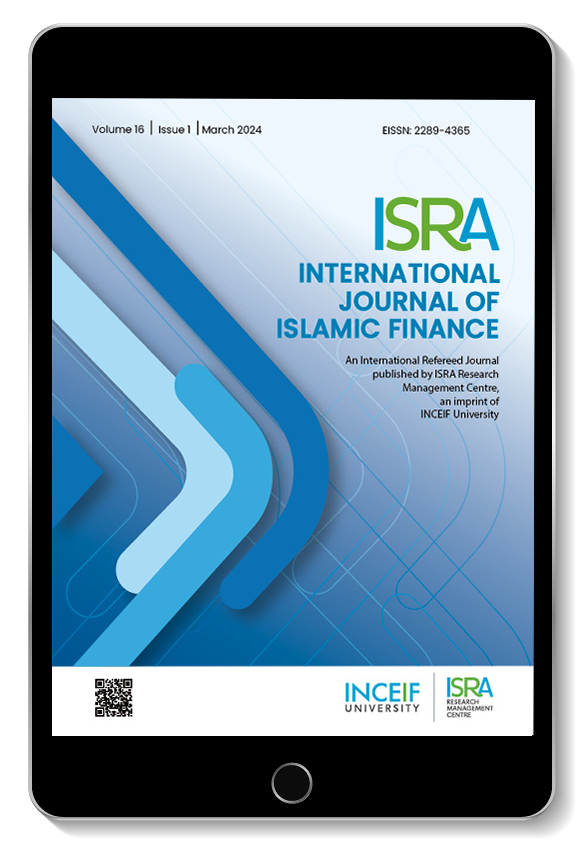Rebate in Islamic sale-based financing contracts: Bank Negara Malaysia guidelines on ibrāʾ versus conventional finance practice
IF 2.8
Q2 BUSINESS, FINANCE
引用次数: 0
Abstract
PurposeThis paper aims to compare the rebate computation in Islamic sale-based financing contracts as proposed by Bank Negara Malaysia (BNM) in its guidelines on ibrāʾ (rebate) – with the rebate computation in conventional finance that is applicable to conventional loans, thus examining if there is a significant difference between the two approaches.Design/methodology/approachThe paper employs the qualitative analysis method, involving review and discussion of relevant literature. Subsequently, a quantitative analysis is utilized to compare both rebate computations: the one proposed by BNM for Islamic sale-based financing contracts and the conventional finance computation that is utilized in conventional loans.FindingsBNM's rebate computation for debts resulting from sale-based financing contracts does not differ from the conventional finance rebate computation applied to conventional loans; such similarity may raise the usury concerns that the conventional finance rebate computation raises.Research limitations/implicationsThe paper focused only on the fixed profit rate rebate computation proposed by BNM guidelines.Practical implicationsThe results highlight the need for seeking another rebate computation to be applied in Islamic financial institutions in the case of mandatory bilateral rebate for sale-based financing contracts – a computation that differs from the practice utilized in conventional loans in order to avoid any usury implications associated with conventional finance computation.Originality/valueThe paper examines the rebate practice proposed by BNM for sale-based financing contracts. Forcing a predetermined rebate computation in sale-based financing contracts could be plausible as BNM requires; however, the suggested computation might be questionable because it resembles conventional finance computation.以伊斯兰销售为基础的融资合同中的回扣:马来西亚国家银行关于易卜拉尔与传统金融实践的指导方针
目的本文旨在将马来西亚国家银行(BNM)在其关于ibrāʾ(回扣)的指导方针中提出的伊斯兰销售融资合同中的回扣计算与适用于传统贷款的传统金融中的退款计算进行比较,从而检验这两种方法之间是否存在显著差异。设计/方法论/方法本文采用定性分析方法,包括对相关文献的回顾和讨论。随后,使用定量分析来比较两种回扣计算:BNM为伊斯兰销售融资合同提出的回扣计算和传统贷款中使用的传统融资计算。FindingsBNM对基于销售的融资合同产生的债务的退税计算与适用于传统贷款的传统融资退税计算没有区别;这样的相似性可能会引发传统融资返利计算所引发的高利贷担忧。研究局限性/含义本文仅关注BNM指南提出的固定利率回扣计算。实际含义研究结果强调,在基于销售的融资合同的强制性双边回扣的情况下,有必要寻求另一种适用于伊斯兰金融机构的回扣计算——这种计算不同于传统贷款中使用的做法,以避免与传统融资计算相关的高利贷影响。独创性/价值本文考察了BNM提出的基于销售的融资合同的回扣做法。根据BNM的要求,在基于销售的融资合同中强制计算预先确定的回扣可能是合理的;然而,建议的计算可能有问题,因为它类似于传统的金融计算。
本文章由计算机程序翻译,如有差异,请以英文原文为准。
求助全文
约1分钟内获得全文
求助全文
来源期刊

ISRA International Journal of Islamic Finance
BUSINESS, FINANCE-
CiteScore
3.40
自引率
17.40%
发文量
18
审稿时长
20 weeks
期刊介绍:
It is the aspiration of the editorial committee that IJIF achieves the highest rank in quality and substance. It is thus our aim that the journal be carried in the Thompson Reuters’ ISI and Scopus databases. By ensuring high standards in articles published in Islamic finance we ensure that further innovation and research is carried out and promoted in the Islamic finance industry and academia. IJIF publishes 2 issues per annum.
 求助内容:
求助内容: 应助结果提醒方式:
应助结果提醒方式:


